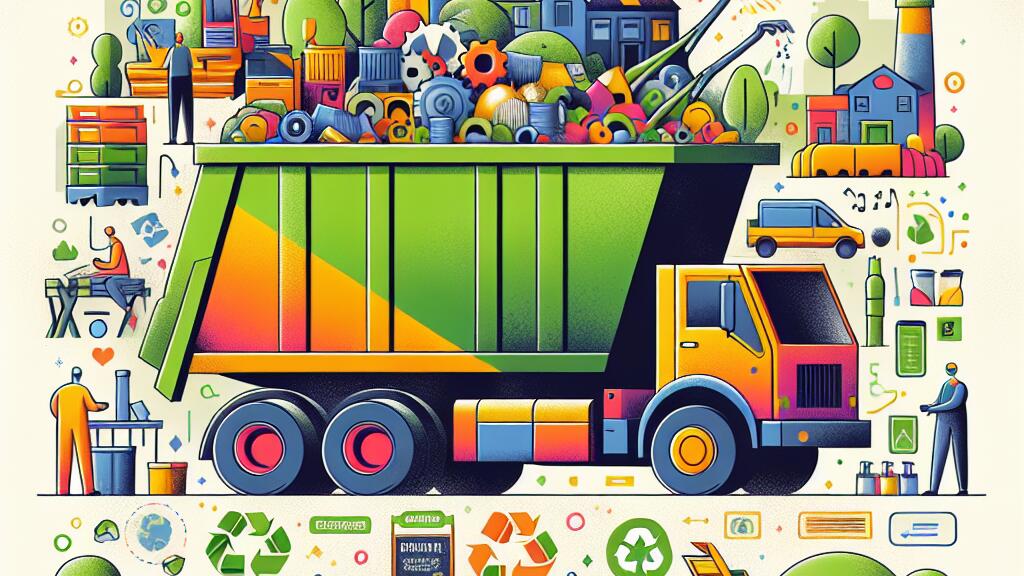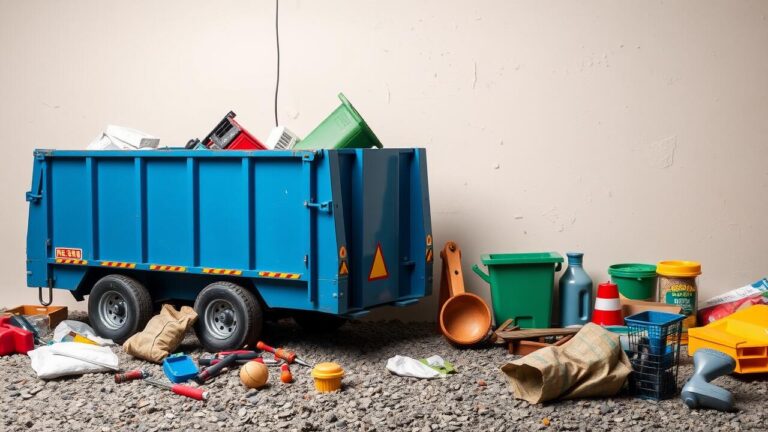10 Tips for Efficiently Using a Residential Dumpster
Maximize Space Efficiency
To make the most of the space in a residential dumpster, careful loading techniques are essential. Start with larger, bulkier items on the bottom. This creates a sturdy foundation. After securing the base, fill in the gaps with smaller, lighter materials. Distributing weight evenly will prevent items from shifting during transport.
Consider breaking down materials whenever possible. Cardboard boxes can be flattened, and furniture can often be disassembled. This not only saves space but also optimizes the volume of the dumpster. Packing items tightly will maximize capacity, reducing the number of trips needed for disposal. Implementing these strategies supports an efficient loading process while making the most of the available space.
Techniques for Proper Loading
Loading a dumpster efficiently can significantly impact how much waste you can fit inside. Start by breaking down larger items such as furniture and appliances. This not only creates more space but also helps prevent damage to the dumpster’s walls. Place heavier items at the bottom to provide a stable base. Use smaller items to fill in gaps around larger pieces. This technique ensures that you utilize the available space optimally.
Consider layering similar-sized items to create a balanced load. Keep an eye on the weight distribution to prevent the dumpster from becoming unsteady, especially when you’re loading heavier materials. Stacking boxes or bags vertically can also maximize vertical space. Tightly packing materials reduces movement during transport. Ultimately, these loading techniques can enhance safety and allow for a more efficient disposal process.
Schedule Delivery and Pickup Wisely
Planning the delivery and pickup of a residential dumpster plays a crucial role in ensuring a smooth waste management process. Consider the timeline of your project before placing an order. Scheduling the delivery to coincide with the start of your project minimizes downtime and ensures that waste can be disposed of promptly. Having the dumpster available from the very beginning allows for easy access to dump debris as work progresses.
When it comes to pickup, coordinating with the waste management company is essential to avoid clutter and inefficiency on your property. Ensure that you communicate any project delays or changes that might affect the desired pickup time. By allowing sufficient time for the disposal of waste, you can prevent overflow and maintain a tidy worksite, ultimately supporting a more organized and efficient workflow.
Coordinating Timelines with Your Project
Planning is essential when integrating a residential dumpster into your project timeline. The delivery of the dumpster should align closely with the start of your work. Ensure that you account for any clean-up phases when scheduling pickup. Being proactive in your scheduling prevents unnecessary delays and helps maintain workflow efficiency.
It’s also advisable to consider the estimated duration of your project. A larger job may require a longer rental period for the dumpster. By estimating your timeline accurately, you can avoid rushed clean-up efforts. Having an appropriate rental period allows you to focus on the task without the added stress of impending deadlines related to the dumpster.
Use the Dumpster Responsibly
Responsibly managing the dumpster includes being aware of what can and cannot be disposed of within it. Many waste management companies have strict regulations regarding prohibited items. Common restricted materials include hazardous waste, electronics, and large appliances. Disposing of such items improperly can lead to fines or additional charges. Always verify with your rental service for a comprehensive list of unacceptable items to ensure compliance.
Maintaining respect for your dumpster rental also involves limiting the amount of waste placed in it to what is necessary for your project. Overfilling the dumpster is not only unsafe but may incur extra fees or complicate the pickup process. Properly separating recyclable materials from general waste helps promote sustainability and makes the disposal process more efficient. By adhering to these guidelines, you contribute to responsible waste management practices.
Avoiding Prohibited Items
When using a residential dumpster, it’s crucial to adhere to the list of prohibited items set by the rental company. Many companies restrict the disposal of hazardous materials, which can include batteries, paint, chemicals, and electronic waste. Failure to comply not only poses safety risks but can also result in hefty fines or additional charges for improper disposal. Always verify the guidelines provided by the rental service before loading your dumpster.
In addition to hazardous materials, some items are generally not accepted in dumpsters. Appliances such as refrigerators and air conditioners often require special handling due to environmental regulations. Furniture, tires, and concrete can also be on the list of restricted items. Understanding these limitations simplifies the loading process and ensures a smoother experience with your dumpster rental, preventing delays in pickup or unexpected costs.
Keep the Dumpster Clean
Proper maintenance of the dumpster enhances not only its performance but also the overall cleanliness of your project site. Ensuring that the dumpster is free from excess debris and materials will make loading easier. It is helpful to have a designated area for sorted items nearby. This practice minimizes the risk of cross-contamination between recyclable and non-recyclable materials.
During the rental period, pay attention to spills and odors that may arise. Explore options for lining the dumpster with a tarp or protective covering. This can help collect liquids and reduce unpleasant smells. Regular checks for issues will maintain a hygienic environment and reflect well on your project management.
Maintaining Hygiene During Use
Keeping the area around the dumpster clean can significantly enhance hygiene during the project. Regularly removing debris from the vicinity prevents the accumulation of pests and unpleasant odors. Using a broom or shovel to clear away dirt and spills ensures that the site remains tidy. Maintaining a designated area for waste separation can also facilitate easier cleaning and organization.
Additionally, it is important to wear gloves when handling waste to avoid direct contact with potentially hazardous materials. This simple practice can help minimize the risk of contamination and protect personal health. When feasible, placing a tarp or plastic sheet at the bottom of the dumpster can aid in containing mess and facilitate cleanup once the project is complete. Being mindful of cleanliness throughout the use of the dumpster creates a safer and more pleasant environment for everyone involved.
FAQS
What types of items are prohibited from being disposed of in a residential dumpster?
Prohibited items typically include hazardous materials, chemicals, batteries, tires, appliances with refrigerants, and any items that can pose a safety risk. Always check with your rental company for specific guidelines.
How can I maximize space in a residential dumpster?
To maximize space, break down large items, load heavier materials first, and fill in gaps with smaller debris. Stacking items efficiently can also help utilize the available space more effectively.
What should I consider when scheduling delivery and pickup of the dumpster?
Consider the timeline of your project, local regulations, and the availability of the dumpster rental service. It’s best to schedule the delivery for when you are ready to start your project and arrange for pickup promptly after you finish.
How can I maintain cleanliness while using a residential dumpster?
To keep the dumpster clean, avoid overfilling it, use a tarp or cover to prevent debris from blowing away, and clean up any spills or dirt around the dumpster area regularly.
What are the consequences of using a dumpster irresponsibly?
Using a dumpster irresponsibly can lead to additional fees, fines, or penalties from your rental company or local authorities. It can also create safety hazards and environmental issues. Always follow the guidelines provided by your dumpster rental service.







